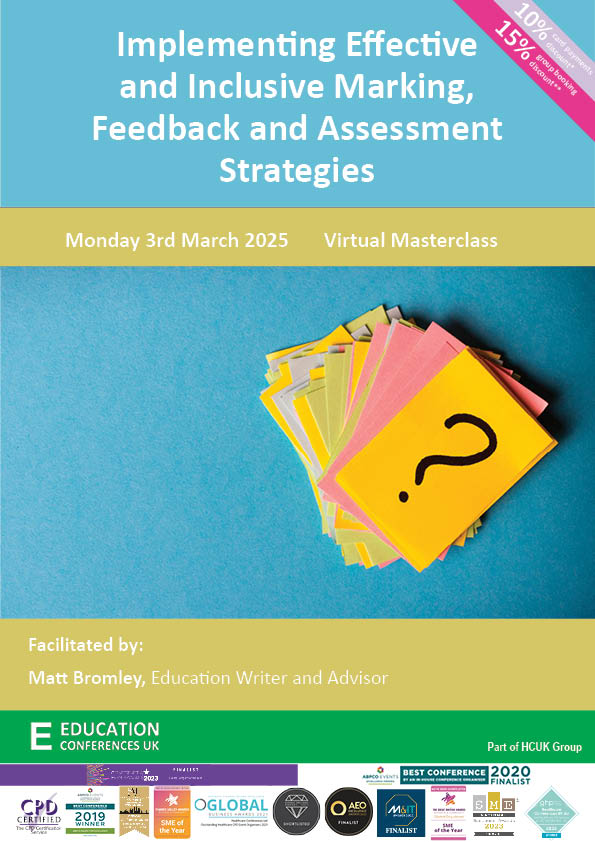This full day masterclass has been designed to support schools to ensure that they have in place an effective and meaningful marking strategy.
Marking is an essential part of the learning process to ensure that students are motivated to succeed. But, with a current emphasis clearly on reducing teacher workloads, schools need to ensure that their marking, feedback and assessment procedures don’t add unnecessary pressures.
Join us for this full day masterclass and come away with practical ideas, informed by the latest research and case studies, to help you ensure that your school’s assessment policies are effective, manageable, and efficient.
Our expert speaker, Matt Bromley will lead you through key topics including; articulating the purpose of assessment, writing learning intentions and success criteria, using questions and classroom dialogue an activating learners in the process of learning.
WHO SHOULD ATTEND
Headteachers, Deputy Heads, Assistant Heads, Pupil Premium Leads, Inclusion Leads, DSLs and other members of the senior leadership team.
FACILITATOR
Matt Bromley is an education writer and advisor with over twenty years’ experience in teaching and leadership including as a secondary school headteacher and principal, FE college vice principal, and MAT director. He is a public speaker, trainer, and school improvement lead, and a primary school governor. He remains a practising teacher, currently working in secondary, FE and HE settings. Matt writes for various newspapers and magazines, is the author of numerous best-selling books on education, and co-hosts the award-winning SecEd podcast. He regularly speaks at national and international conferences and events, and he delivers teacher-training.
KEY LEARNING OBJECTIVES
By the end of this masterclass, you will understand how to:
Ensure that your school’s assessment policies are consistent but allow for autonomy
Make assessment meaningful and motivating for learners
Reduce the impact of assessment on teacher workload and stress
Set clear learning intentions and set clear and manageable criteria for success
Provide feedback that motivates learners
Use closed and open questions in the classroom for assessment practices
Promote critical thinking using dialogic teaching
Develop learner’s metacognition and self-regulation skills
Ensure that students take ownership of their own learning
Teach study and research skills









